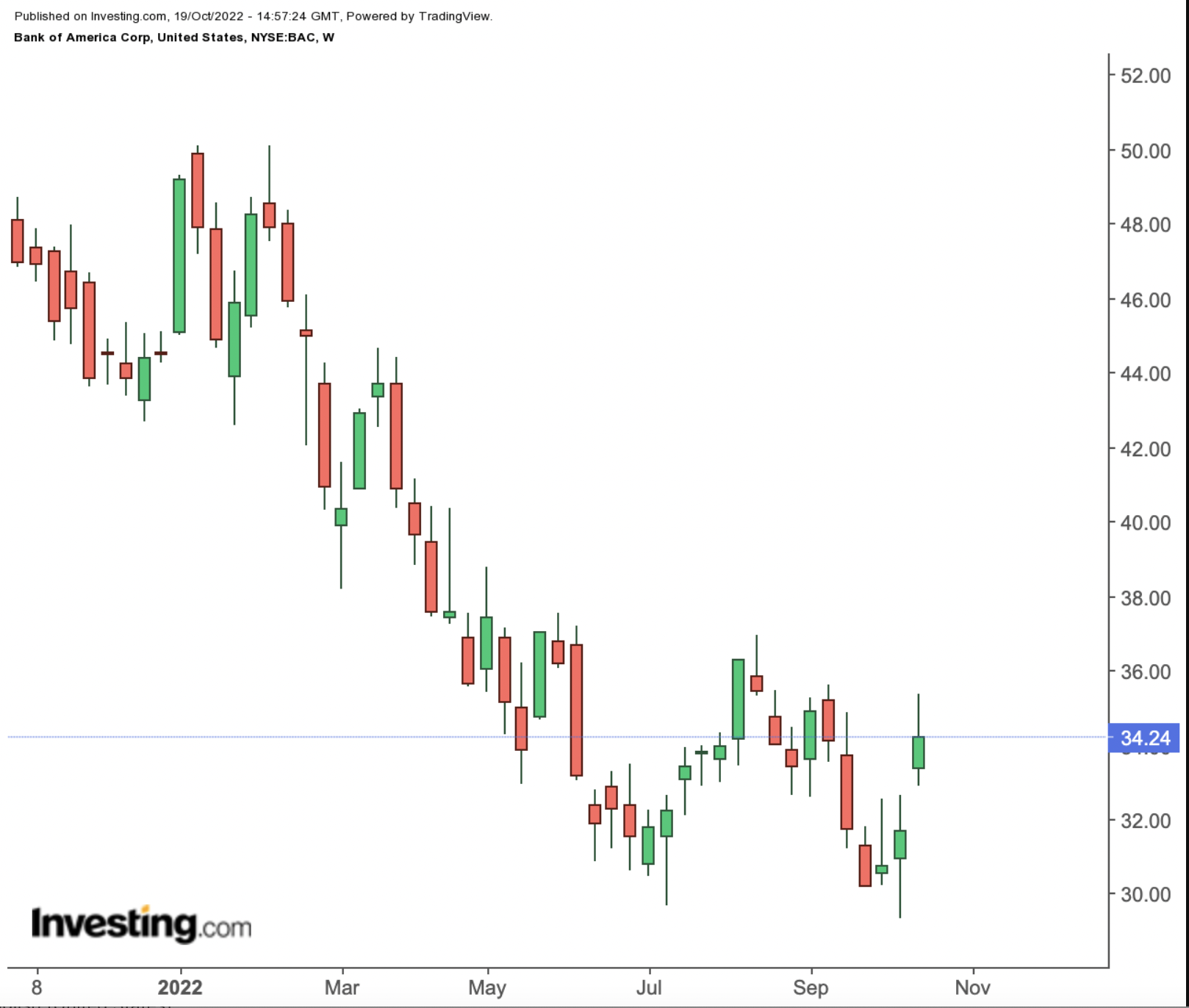- There's a seemingly easy bear case for BAC amid rising recession risks
- But rising interest rates suggest a big tailwind to earnings — bigger than even BofA projected
- All told, earnings can hold up better than expected — and the same is true for the stock
To some investors, Bank of America (NYSE:BAC) stock is a clear sell at the moment. Yes, the stock is cheap, but macroeconomic risks clearly are rising. Amid Federal Reserve interest rate hikes, a near-term recession seems likely. And BofA, like every other bank, will struggle in a recessionary environment.
That case makes sense on its face — but it misses a key fact. The same Federal Reserve interest rate hikes that are raising fears of recession can also provide a huge tailwind to Bank of America's earnings. That boost can offset pressure from rising credit losses, as well as lower revenue and profits in the company's investment banking operations.
To be sure, this doesn't mean that Bank of America will see no impact from the external environment, or that the company is simply going to grow earnings no matter what happens in the economy. But it does mean that with the stock trading at about 11x this earnings, that too many investors may be overreacting to near-term risks — and missing out on long-term rewards.

Source: Investing.com
A Strong Consumer
Listening to executives on the third quarter conference call, it's easy to be a bit wary of BAC stock.
Chief executive officer Brian Moynihan spent a good deal of time talking up the strength of BofA customers. The CEO pointed out that overall spending was up 12% year-over-year in the quarter. Per chief financial officer Alastair Borthwick, net charge-offs of debts "remain low and stable."
As far as Q3 goes, that's good news. But looking forward, it raises concerns. BofA's credit quality remains well above where it was before the pandemic, let alone in a recessionary environment.
The worry is simply that the bank has significant credit pressure on the way. Post-pandemic normalization alone will lead to higher credit losses even before the economy slows down. The fact that, per executives, there has been little sign of weakness in the consumer doesn't mean that weakness isn't coming. Instead, it means that earnings in that business are closer to a cyclical top than they might be otherwise.
Risks Elsewhere
A recession isn't just a problem for the consumer business. Investment banking fees already are falling amid the bear market, with revenue declining 46% year-over-year. Assets in the Global Wealth and Investment Management business were down 12% year-over-year, thanks to lower market valuations.
Here, too, the worry is that BofA is close to a peak, even if pressure has risen more quickly than it has in the consumer sector. Even the company's traders had a big third quarter, but that's not a surprise: volatility was elevated in the quarter, and institutional traders benefit from volatility.
This all can get worse, and even following the post-earnings rally, investors seem to believe that it will.
Is Net Interest Margin Enough?
But, again, there's a big tailwind on the way. Big banks like BofA have seen their net interest margin — the spread between interest received on loans and interest paid on deposits — crushed by low interest rates. The Fed's moves are allowing net interest margins to finally normalize.
That normalization has a huge impact on profits. In Q3, BofA said net interest margins contributed $1.3 billion in profit, with another $1.25 billion or more expected in the coming quarter. More of a boost is coming in the first half of 2023.
Consider that, combined, credit loss provisions and net charge-offs in Q3 2022 were only $172 million lower than they were in Q3 2019. Global banking (in other words, investment banking) profits, on the whole, was about $2 billion.
A normalized net interest margin papered over a lot of the pressure on the rest of the business over the past few quarters. Not necessarily all of it, to be sure, but net interest margins do negate the knee-jerk argument that BofA is in for a steep, fast decline in earnings.
Is BAC Cheap Enough?
In that context, BAC at least looks intriguing. Price-to-book value is about 1.18x, and as noted, price-to-earnings this year should be about 11x. Neither multiple is particularly onerous.
And, importantly, this is not the same Bank of America that barely made it through the 2008-09 financial crisis. The balance sheet is in far better shape. Real estate exposure is much lower.
Those attributes don't mean BofA isn't susceptible to a macro downturn. They do mean that when that downturn arrives, BAC stock might perform far better than bears would expect.
Disclaimer: As of this writing, Vince Martin has no positions in any securities mentioned.
